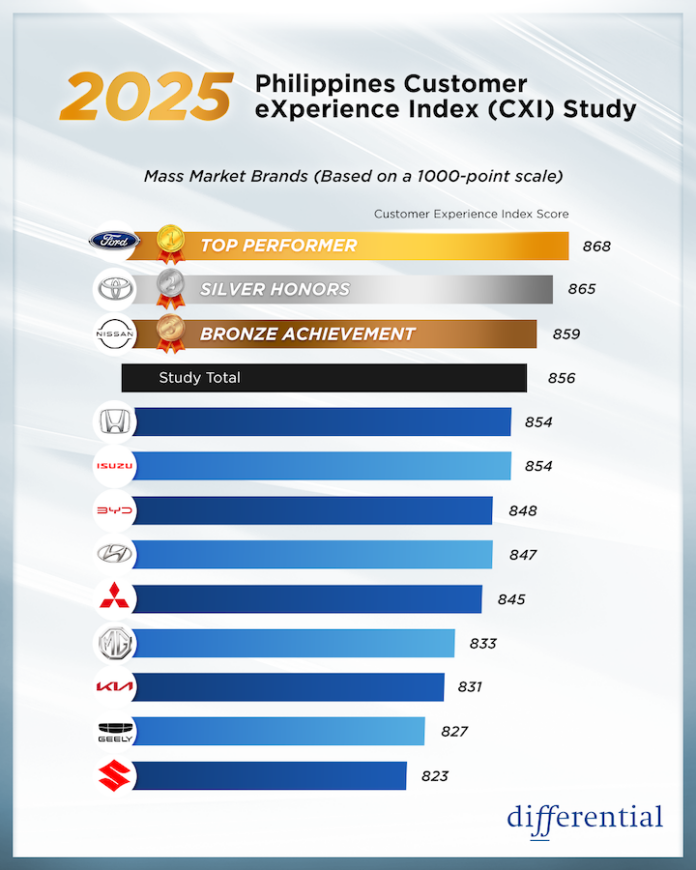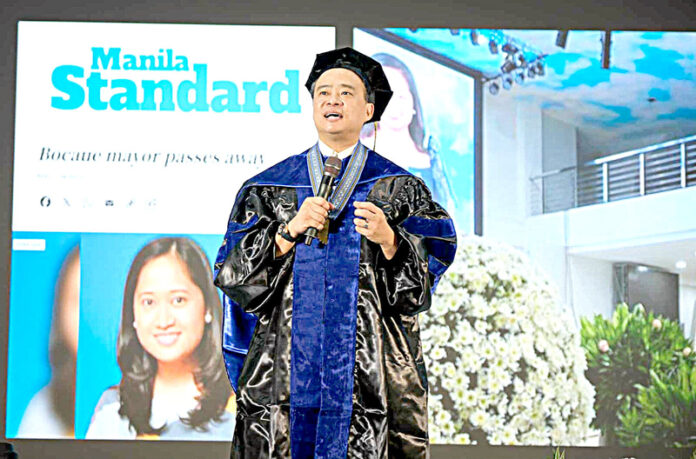Differential Singapore proudly announces the release of its inaugural Philippines Customer eXperience Index (CXI) Study℠, offering key insights into overall ownership experience of passenger vehicle buyers in the country.
The study is the most comprehensive study ever done by an independent agency in the Philippine market, and benchmarks customer experience across three core pillars: vehicle sales, after-sales service, and product satisfaction.
Within these pillars, the study identifies the key drivers of customer perception and brand loyalty in the Philippine automotive market, summarized under three main areas:
• Sales and Purchase Experience covering customer touchpoints like pre-sales consultation, dealership facilities, salesperson interaction, vehicle selection, price negotiation, delivery experience, and post-sales follow-up
• After-Sales Service Quality covering experience areas of service reliability, communication and transparency, convenience, pricing fairness, and personnel professionalism
• Product Satisfaction covering key elements like vehicle design and styling, driving performance, interior comfort, user interface, storage, entertainment systems, and safety features
These dimensions provide a holistic view of what matters most to Filipino car owners today — equipping brands with the insights they need to innovate, improve, and lead in an increasingly competitive marketplace.
Key Industry Insights
- Product Satisfaction Emerges as the Most Important Driver of Customer Experience: Among Filipino vehicle owners, product satisfaction is the decisive factor shaping overall customer experience — contributing over two-thirds weight to the overall experience.
- Japanese Brands Maintain Lead, But Chinese Brands Are Catching Up:
Japanese car brands in the Philippines post an impressive average product index of 866 points, maintaining their lead in customer satisfaction. Meanwhile, Chinese brands — including rising player BYD — average 841 points, closing the gap thanks to aggressive innovation, EV offerings, and competitive pricing. While Japanese brands attract buyers based on reliability and fuel efficiency, Chinese and other emerging brands are winning over customers with bold design and latest technology features.
- Digital Domination As Online Touchpoints Now Shape Every Filipino Car Purchase:
The study finds that nearly 97% of buyers utilized the internet — whether through online research from brand website visits, social media, third-party portal or to simply connect with the dealers — before making a purchase decision. This signals a dramatic shift from showroom-driven sales to an ecosystem where digital touchpoints play a central role in influencing preferences and final choices.
Overall Experience Rankings
Ford leads the overall Customer Experience Index with an impressive 868 out of 1,000 points, followed closely by Toyota at 865 and Nissan at 859, rounding out the top three performers in the country.
Honda earns a special mention for its strong performance across two individual pillars: ranking second in Sales Experience and third in After-Sales Service Quality. This makes Honda the only brand outside the overall top three to secure top-tier rankings in multiple categories, underscoring its consistency in delivering high-quality interactions across the customer journey.
“While product remains the backbone of customer satisfaction, the real game-changer lies in what brands can control: delivering an exceptional brand journey through outstanding sales and service execution. That’s where local industry players can truly outshine the competition,” said Sigfred M. Doloroso, Country Manager, Differential Singapore. “While Japanese brands still dominate on reputation and proven quality, the momentum from Chinese automakers signals a shifting landscape that stakeholders should watch closely.”









